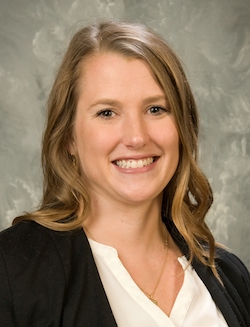
CenteringPregnancy decreases the rate of preterm birth and low-birthweight babies, among other benefits.
Babies born full term have better rates of good health outcomes than those who are born preterm. In fact, premature birth is the number-one cause of death of babies in the United States. Along with low birth weights, premature births put babies at risk for many long-term health problems, including chronic lung disease, blindness, hearing loss, intellectual disabilities and cerebral palsy.
While the average normal gestation for full term babies is 40 weeks, preterm births occur when babies are delivered before 37 weeks. The preterm birth rate in the United States averages 9.8 percent and is only slightly higher in Peoria County at 10.6 percent. What is cause for concern in Peoria County is the greater disparity of preterm births at a much higher rate of 13 percent for Black/African American babies compared with white babies at 9.7 percent, as reported in the 2017 Peoria County Maternal and Child Health Report.
This disparity is now a focal point for the Reproductive Health Workgroup, which addresses strategic health issues in our region’s Community Health Improvement Plan.
Bridging the Gap
To improve the health of Peoria County residents and decrease the disparity in preterm birth rates, the Reproductive Health Workgroup has chosen CenteringPregnancy® as a program strategy to bridge the gap and assure that best health practices in prenatal care are available to women at risk of preterm births.
CenteringPregnancy is an alternative to traditional prenatal care that adds a group support process to care. This form of healthcare is patient-centered, follows nationally recognized guidelines, and allows time and flexibility to meet the needs of each individual. The initiative provides engagement and learning in a group setting, while still assuring each person meets individually with their medical provider. Participants are assigned to a group of women with similar due dates to encourage peer support and share experiences.
CenteringPregnancy has been shown not only to decrease the rate of preterm birth and low-birthweight babies, but also to improve breastfeeding rates and pregnancy spacing, which is good for babies and moms. Another significant outcome is that health disparities are lowered. According to Centering Healthcare Institute, “African-American women, who are at higher risk for preterm birth in the U.S., experience lower risk of preterm birth when enrolled in CenteringPregnancy than in traditional care.”
Community-Wide Partnership
After identifying CenteringPregnancy as a feasible strategy for Peoria, the Reproductive Health Workgroup chose a collaborative approach by forming a steering committee to advance the program. The steering committee works with the strengths of partnering organizations that include individuals from Peoria City/County Health Department, University of Illinois College of Medicine Peoria, Heartland Health Services and the City of Peoria.
With initial challenges of building interest in this newer concept of prenatal care and securing funding, the new committee’s first success came in receiving a grant from March of Dimes, followed by an additional grant from the UnityPoint Health Foundation. With these grants, the committee was able to begin the first CenteringPregnancy group in 2018 at Heartland Health Services’ Carver location, as well as hire a co-facilitator to promote, recruit and organize the groups.
Community interest continues to grow with information and referral requests from individuals, organizations and local medical providers. By April 2019, the committee expects to complete four additional CenteringPregnancy groups and expand sessions to a second location at Family Medical Center. iBi
Michelle Compton, RD, LDN, CLC is child and family health coordinator at the Peoria City/County Health Department. Learn more about the benefits of public health policies and programs at pcchd.org.

